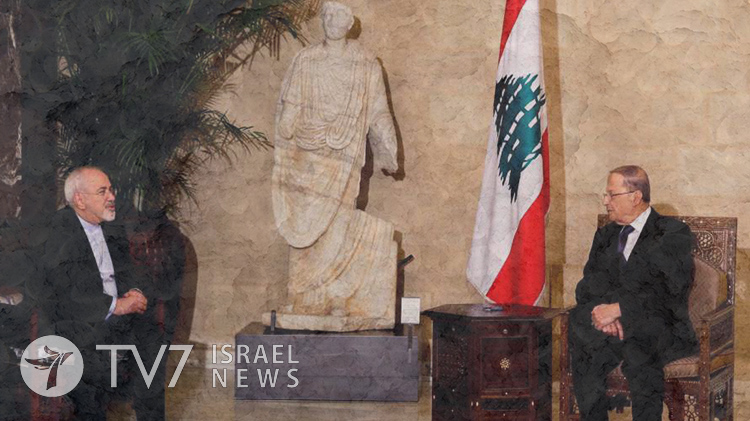Iran’s top diplomat Mohammad Javad Zarif became the first Foreign Minister to meet Lebanon’s newly elected President, a move that underscored Tehran’s struggle for influence in Beirut with its regional arch rival Saudi Arabia. “The Lebanese people showed it is possible to reach a solution acceptable to all, or what we call a win-win situation, we hope others also come to this understanding that there can only be a political solution to the crises in Syria, Iraq and Yemen, but while continuing the fight against terrorism,” said Zarif.
The newly-elected President Michel Aoun, a former army commander, was elected by the Lebanese parliament as president last Monday, ending a 29-months presidential vacuum. Aoun is a Christian leader and close ally of Lebanon’s most powerful organization Hezbollah, which is Iranian-backed, opening the door for the Islamic Republic to exercise more of its influence in the small and strategic country, bordering Israel, Syria, Turkey and the Mediterranean Sea. That said, the Iranian top diplomat stressed, prior to a meeting with Lebanese Prime Minister Saad Hariri – a Sunni-Muslim leader backed by Saudi Arabia – that he would emphasize Iran’s determination to cooperation with all ethnic groups in the country. “In my meeting with Saad al-Hariri I will emphasize Iran’s determination to cooperate with all Lebanese people, from any group or ethnicity,” declared Zarif.
During the day, the Lebanese President also met an envoy sent by Syrian President Bashar Assad. Mansour Azzam, who is head of Syria’s presidential affairs, greeted Aoun on behalf of Bashar Assad, saying he hoped Aoun’s election would contribute to stability in Lebanon and in the region, while emphasizing that the relations between Syria and Lebanon would remain as it was prior to the raging war in its eastern neighbor. “There will be no new page in Syria-Lebanon relations and they will continue in a balanced way and the main title is the common interest of the two countries,” said Azzam.
The Sunni Muslim Saudi Arabia and Shi’ite Iran have for years backed opposing forces in Lebanon, as well as in in Yemen, Iraq and Bahrain. The two arch rivals have broken diplomatic ties earlier this year after Riyadh executed a Shi’ite Muslim cleric and a subsequent attack by protesters on it’s the Saudi embassy in Tehran.
